Court records show judges knew Brighton terror gunman would reoffend
COURTS gave Yacqub Khayre 10 separate chances before he was killed. Now the parole board has made a startling admission.
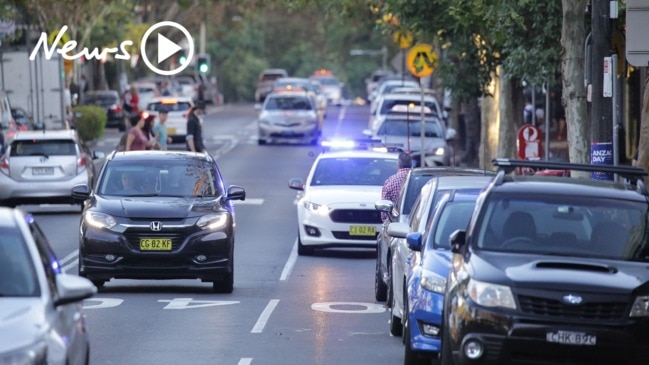
IF Melbourne terrorist Yacqub Khayre had served the full sentence he was handed in 2012, he’d still be in prison today.
But in December last year when the violent criminal was granted parole, he was given a chance — one that was made clear on Monday night he did not deserve.
Over the 29-year-old’s comprehensive criminal career, the justice system gave Khayre more than 10 chances, and each one came back to bite them.
Khayre’s act of terrorism on Monday night that saw an innocent receptionist murdered, a woman taken hostage, and three police officers shot before the jihadi himself was gunned down, was only his latest criminal act while being trusted to reform his ways. And it should come as no surprise to those who were aware of and involved in his previous dealings with the justice system.
He was on a terror watch list at the time of the fatal incident, but Victoria’s parole board has said it had not been informed of this before or after its decision to release him into the community on parole only six months ago.
Khayre had been regularly convicted, released, and found to reoffend when it came to violent crimes since his teens.
His rap sheet includes stabbings, drug charges, aggravated robberies and assaults, with many of these offences committed while on parole or shortly after being released into the community.
In 2012, while being sentencing Khayre for a violent burglary in which repeatedly assaulted the woman whose home he broke into, a judge predicted he would reoffend if given the chance.
The Somali refugee didn’t manage to make away with the iPod, watch, computer and jewellery he had bagged up from the woman’s bedroom, but according to the victim and her father, he robbed the immigrant family of their “feeling of safety” only weeks after they had arrived in Australia.
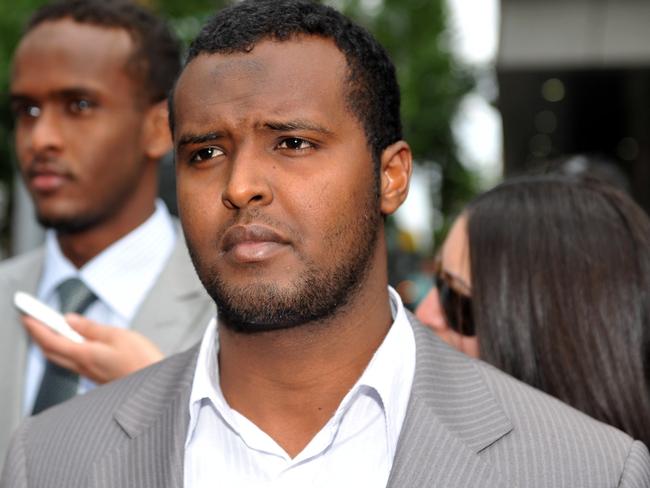
SIGNS OF A SERIAL REOFFENDER
In handing down her judgment, Judge Felicity Hampel made multiple predictions Khayre could not be rehabilitated and was a high risk to reoffend. Similar statements were made about Khayre in earlier judgments and appeals as well.
— In an appeal judgment in 2013, a judge said Khayre did not appear remorseful and had “limited prospects of rehabilitation”.
- Judge Hampel predicted the burglary sentencing was “not (Khayre’s) last matter before a court” and said he had “gloomy prospects”.
- She took into account his drug abuse: “Given your youth, and despite the gloomy prospects presented to me, I consider I should impose a sentence which will provide encouragement to you to address your drug problem in custody, and to have available to you the prospect of release on parole and support and supervision on parole, so as to assist you to remain offence and drug-free upon your release.”
- In an earlier judgment from a separate crime in Judge Joe Gullaci said: “If you do not stop abusing drugs, you have limited prospects for rehabilitation.”
- Judge Gullaci: “It would appear that each time you have been released from detention or custody, you have rapidly turned back to drug abuse, and nothing has been put to me to indicate that you demonstrate any will or commitment to address it.”
- Judge Hampel: “When he sentenced you, His Honour Judge Gullaci considered that your prospects for rehabilitation were at that stage limited unless you were able to overcome your drug and alcohol dependency. You have clearly not been able to do so.”
- Judge Hampel: “There is a real risk you will become even more isolated than you are now, institutionalised, and at increasingly high risk of reoffending. You are only 24 and you have spend more time in custody that in the community since your late teens. You went from youth detention to high security detention in an adult prison at only 20, and you faced the prospect of life imprisonment throughout that time.”
- Judge Hampel: “The applicant has learnt little from his incarceration of about four months between August and November 2011.”
LAWYERS SAID THIS TIME WOULD BE DIFFERENT
In his final sentencing Khayre was handed an eight year sentence with a six year non-parole period, meaning he could be eligible for parole in October 2015.
He had reoffended multiple times after being released from youth detention as a teenager, but in appealing his sentence in 2013, a lawyer for the young man assured “this will not be the case when he’s on adult parole.
“He understands what parole will be,” his defence lawyer said. “He also understands, Your Honour, that in some respects his adult parole, and this will be the first adult parole period, will be far different from his period of parole when he was released from Malmsbury (youth detection).
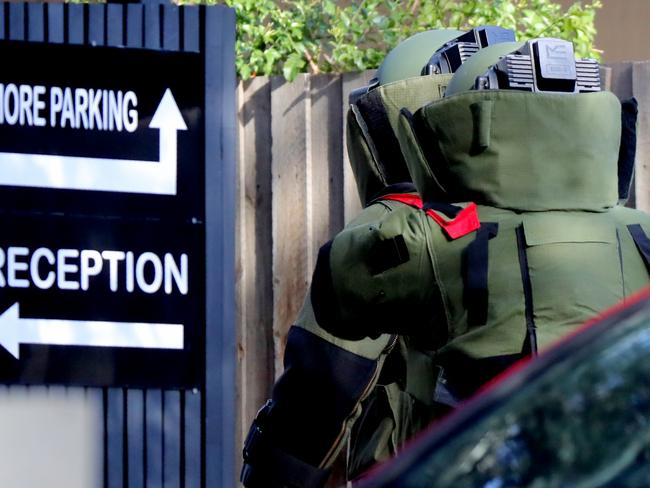
“This will not be the case when he’s on adult parole. If he doesn’t comply he’ll be breached and he will have to serve some or all of the parole period.”
Even before he was granted parole, Khayre reoffended while still in prison.
In February 2014 he committed arson, setting fire to Loddon Prison in Castlemaine.
For this he earned a fine of $217.80 and a one month concurrent sentence, which served to delay his parole eligibility period.
A year later, he lit a fire at Barwon prison where he had been moved too, earning a fine over $1500 and another two months in prison.
As Victorian Premier Daniel Andrews informed the public after the deadly siege Khayre sparked, he had “behaved terribly” while in prison.
And despite this, he was granted parole, in December 2016, over a year after the original parole date set by the court, but almost a year and a half before his full sentence expired.
AUTHORITIES ARGUE OVER RESPONSIBILITY
Authorities in Victoria have defended the decision to release Khayre on parole — a decision that ultimately facilitated Monday night’s fatal terror attack.
After the incident Mr Andrews said: “I would make the point that he had served significant jail time and become eligible for parole at a later point than he might have hoped because his sentence had been increased because of poor behaviour — this is the advice that I have — terrible behaviour in prison.
“I would point to the fact that the sentence did not relate to terrorism acts. He was actually acquitted of (terrorism) charges in New South Wales, as we all know.
“The jail sentence and his parole was in relation to other criminal acts that weren’t of a terrorism nature.”
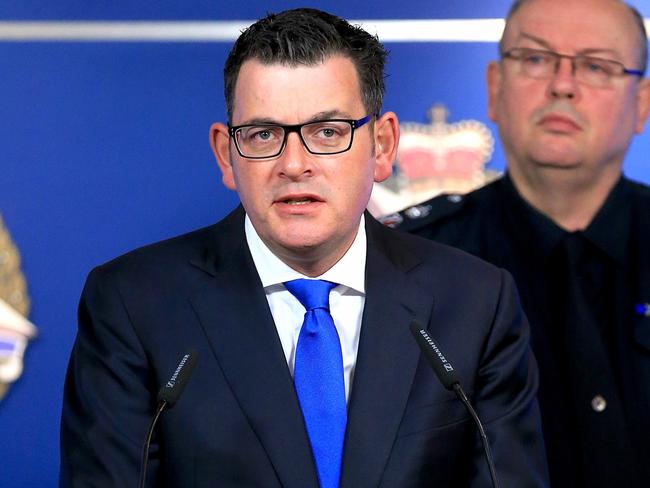
Prime Minister Malcolm Turnbull this morning said he had questioned Mr Andrews about the decision, and took a swipe at the Premier saying responsibility for parolees lay with the responsible government.
But Mr Andrews has called for any decisions regarding people on terror watch lists in Australia to be a national issue.
“I don’t want to make this a partisan or a political issue, this is a question of national leadership and national responsibility,” he told ABC. “I want ASIO and the Australian Federal Police not just to be providing advice, but to be directly involved in any decision to grant parole to anybody on that watch list.”
Prime Minister Malcolm Turnbull has said there will be “serious discussions” about parole decisions for people on terror watch lists at this week’s COAG meeting in Hobart, and has continually asked the questions “How was this man on parole?”.
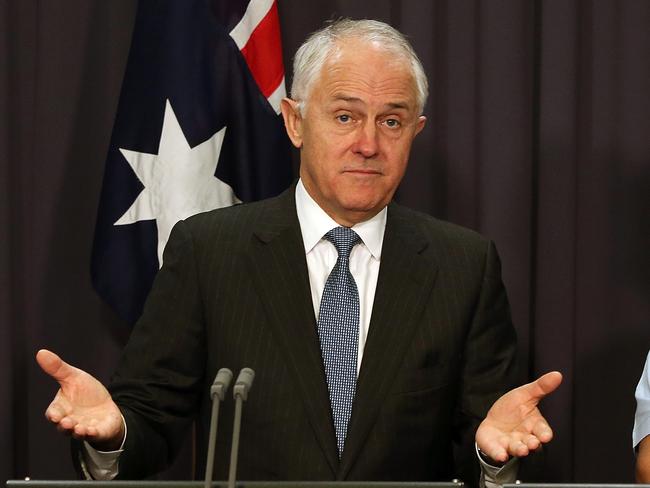
Head of the Adult Parole Board Peter Couzens has hit back at Mr Turnbull and dismissed criticism of the decision.
“The Prime Minister was advocating that people convicted of violent offences shouldn’t get parole. With the greatest respect that is a most reckless claim,” he said in a radio interview with 3AW. “There was no information from Corrections, or any external authorities, that he was any sort of risk to the community.”
Mr Couzens also revealed the board had not been made aware Khayre was on a terror watch list.
“We were not told anything along those lines either at the time of making the order or subsequently,” Mr Couzens said. “There was nothing that came to the notice of the board that would give it cause for concern.”
Mr Couzens said such information should “absolutely” be shared with the parole board and Corrections Victoria.
CALLS TO LOCK UP ALL TERROR SUSPECTS
Mr Turnbull has been asked whether he will follow the lead of the UK Prime Minister and impose new powers to beef up police powers against would-be terrorists.
Theresa May has announced that she will move to impose a number of new restrictions.
These include a 28-day questioning period that would allow police to hold suspected terrorists or supporters in custody for that period; tougher restrictions on terror suspects even when there is not enough evidence to prosecute; toughen deportation laws allowing judges to throw out foreign terror suspects; and allow exceptions to the Human Rights Act if it gets in the way of counter-terror operations.
When asked if he would follow suit, Mr Turnbull told 3AW radio Australian courts already had the powers to deport people who weren’t Australian believed to be involved in terror plots or have links with extremists.

